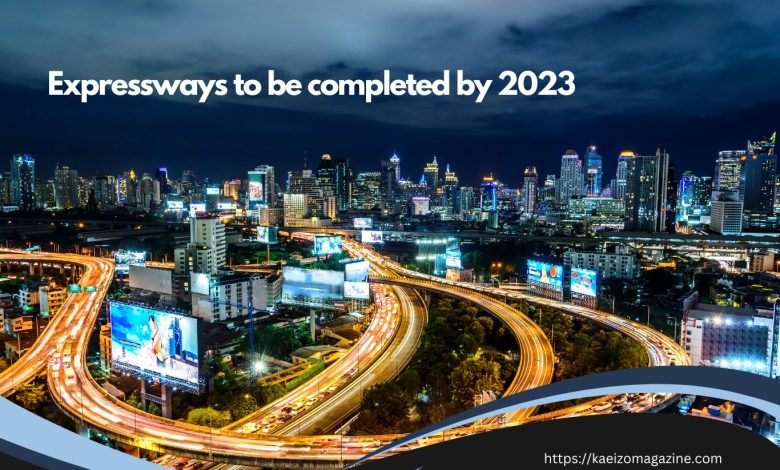Revolutionizing India’s Transportation: Expressways Set To Transform Connectivity By 2023
Revolutionizing India's Transportation: Expressways Set To Transform Connectivity By 2023

India is in the midst of a major infrastructure boom, and one of the key areas of focus is the development of new expressways. In the next few years, a number of major Expressways to be completed by 2023, which will significantly improve connectivity and reduce travel times across the country.In this article, we will explore some of the major expressways scheduled to be completed in India by 2023, revolutionising the country’s transportation network.
1. Delhi-Mumbai Expressway
This 1,382-kilometre expressway will connect Delhi and Mumbai. It will be the longest expressway in India, and is expected to reduce travel time between the two cities to 12 hours.
2. Ahmedabad-Dholera Expressway
This 110-kilometre expressway will connect Ahmedabad and Dholera. Dholera is a planned smart city, and the expressway is expected to boost economic development in the region.
3. Amritsar-Jamnagar Expressway
This 1,257-kilometre expressway will connect Amritsar and Jamnagar. It will pass through several major cities in Gujarat and Rajasthan, and is expected to boost trade and tourism in the region.
4. Mumbai-Vadodara Expressway
This 379-kilometre expressway will connect Mumbai and Vadodara. It is expected to reduce travel time between the two cities to 3 hours, and will boost economic development in the region.
5. Dwarka Expressway
The Dwarka Expressway is a 29-kilometre, six-lane expressway that will connect the Dwarka sub-city in Delhi with Gurugram. The expressway is expected to be completed by the end of 2022, and it is estimated to reduce travel time between Dwarka and Gurugram by up to 50%.
6. Delhi-Amritsar-Katra Expressway
The Delhi-Amritsar-Katra Expressway, spanning 600 km, will connect Delhi with Amritsar and Katra. It aims to boost tourism, provide easier access to religious sites, and stimulate regional economic development.
7. Purvanchal Expressway
The Purvanchal Expressway in Uttar Pradesh spans 341 km, connecting Lucknow with towns in Purvanchal. It will stimulate economic growth and enhance regional connectivity.
8. Mumbai-Nagpur Expressway
The Mumbai-Nagpur Expressway in Maharashtra covers 701 km, reducing travel time between the two cities and promoting trade, agriculture, and industrial development along its route.
9. Eastern Peripheral Expressway
The Eastern Peripheral Expressway around Delhi spans 135 km, diverting non-Delhi bound traffic to reduce congestion and improve air quality. It enhances connectivity in the National Capital Region.
Some of the benefits that are expected to be realised from the completion of these expressways:
These expressways are part of the government’s Bharatmala Pariyojana, a ₹5.35 trillion ($70 billion) plan to build 65,000 kilometres of highways and expressways across the country. The Bharatmala Pariyojana is expected to create millions of jobs and boost economic growth.
The completion of these expressways will have a major impact on the Indian economy. They will reduce travel time, boost trade and tourism, and create jobs. These expressways will also help to improve the environment by reducing pollution from trucks and buses.
The government is committed to completing these expressways by 2023. This is a major undertaking, but it is one that will have a positive impact on the Indian economy and environment.
Conclusion
The completion of these expressways is a major milestone for the Indian government. It is a sign of the government’s commitment to improving infrastructure and boosting economic growth.




